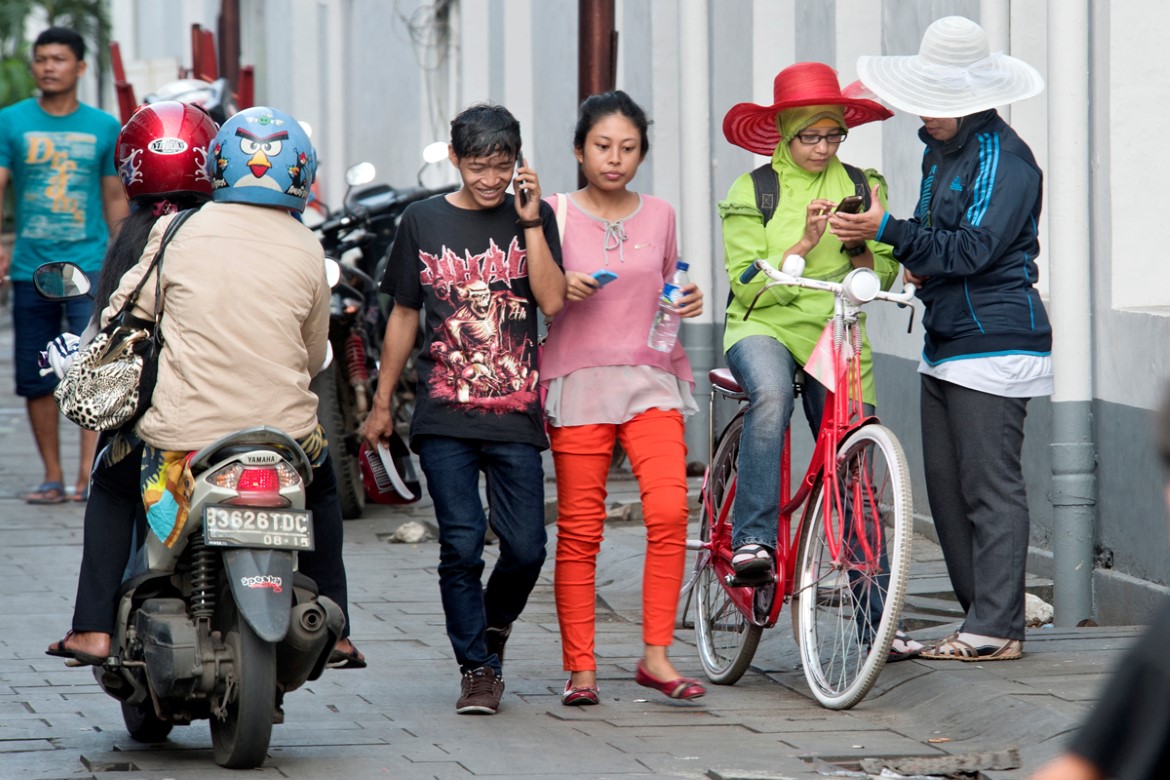
Innovative education projects
The new digital world provides new opportunities. According to GSMA, the trade body that represents the interests of mobile operators worldwide, there were more than 4.8 billion mobile phone users worldwide in 2016. This makes the mobile phone the world’s most accessible and most frequently used information tool.
Digital opportunities
Mobile phones can be used wherever you are, are relatively low-cost and easy to use. They are indispensable for staying in contact with family and friends in other parts of the world, and are also increasingly used to send and receive money and for other financial services.
Given the expanding role of mobile phones in people’s everyday lives, including among the world’s poorest, they may also be useful for reaching marginalized households directly with information and learning opportunities. The mobile phone can also serve as an important tool for teachers in their administrative duties as well as in the classroom, and can be used to store and communicate learning content.
Most of those who use the Internet in developing countries do so via their mobile phones, but an estimated four billion people worldwide are still not online. The costs of data and equipment and lack of user skills represent key challenges. Women in rural areas are among those who have least access to mobile phones and the Internet, and they are also overrepresented among groups that cannot read and write.
What is Norway doing?
In February 2017, Norad combined several digital learning interventions into a ‘Digital Empowerment Project’. The Project aims to improve digital access for the world’s poorest by strengthening:
- Reading skills
- Digital skills
- Access to relevant digital content and services in mother tongues/used languages
Currently, the most important interventions that are part of the Project are EduApp4Syria and the Global Digital Library.
EduApp4Syria
EduApp4Syria is an international innovation competition which has sourced two open source smartphone applications that can help Syrian children learn how to read in Arabic and improve their psychosocial wellbeing.
- Read more about EduApp4Syria
Global Digital Library
With the Global Digital Library, Norway is heading a project to make quality-assured learning resources for reading available in a number of African and Asian languages. Considerable emphasis will be placed on using universally accessible formats that can benefit users with disabilities and special needs.
The library can potentially be important for providing learning materials for schools and for promoting household and community reading. The Global Digital Library is part of a broader Global Book Alliance.
- Read more about the Global Digital Library
Other innovative programmes for education
Game based learning in Malawi
Another example of a Norwegian supported digital learning resource is a game based learning project funded by the Norwegian embassy in Malawi. The project uses digital learning games to promote basic reading and maths skills.
The target group includes first- and second-grade pupils in Malawi. The project is implemented by the British organization VSO. The advantage of this type of learning, where pedagogy is integrated into the technology, is that children can learn with less adult supervision.
Vision 2030
The Vision 2030 initiative was launched by the Norwegian Ministry of Education and Research, the Ministry of Health and Care Services and the Ministry of Foreign Affairs in the autumn of 2014 as a national brainstorming to produce innovative Norwegian solutions that can help in achieving the sustainable development goals for education and health.
During the Vision 2030 conference in Trondheim in March 2015, a funding mechanism of up to NOK 150 million was launched.
- Read more about the innovation brainstorming and the projects that currently receive support
